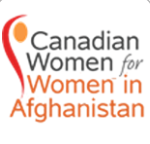CALL FOR SOLIDARITY & ACTION: NAMING AND ENDING GENDER APARTHEID
Call for Solidarity & Action: Naming and Ending Gender Apartheid
This call for solidarity is initiated by WLUML, CW4WAfghan, Women’s Regional Network , Women’s Advocacy Committee, and allied organizations and activists. We invite you to show your solidarity with the following statement and recommendations.
We, the undersigned, are calling for concerted action by the international community, through the UN system, to pursue justice and accountability for systemic, wide-scale and life-threatening discrimination and gender-based human rights abuses against women and girls in Afghanistan and Iran. Every aspect of Afghan women’s lives is controlled and scrutinized through multiple edicts, decrees, instructions and rules designed to subjugate and erase women from the public sphere and public life. The Taliban’s gender ideology that views women as lesser beings without rights is at the heart of their policies. Their rule and political vision undermine peace and security in Afghanistan, throughout the region and globally.
There is by now undeniable evidence that the Taliban envision a society where the subjugation of women and girls, and violence against them, is normalized, and their intent is to enforce their discriminatory rules through the use of terrifying violence, including torture and other ill-treatment, enforced disappearances, sexual violence and executions. In fact, their regime amounts to rule rather centred on gender discrimination or, gender apartheid.
The Case for the Legal Recognition of Gender Apartheid
The term gender apartheid was first coined in the 1980s in reaction to the Islamic Republic of Iran’s laws that legally made women and continue to treat them worth half as much as men. Then similar policies used in the 1990s during by the Taliban’s first period of rule in Afghanistan. Today, there is consensus among rights experts, Afghan and Iranian women activists, scholars and legal scholars, among others, that the Islamic Republic of Iran and the Taliban’s policies and behaviour constitute gender apartheid: “the use of the systematic segregation of the sexes imposed through law and policy as a governing ideology” (Bennoune, 2022).
Apartheid on the basis of race is a violation of the UN Charter, and a convention exists that criminalizes it. As such, perpetrators of apartheid hold criminal responsibility and are subject to prosecution, and UN member states have obligations to respond when other states’ practice apartheid, and member states can call upon the UN to suppress and prevent apartheid. Sex and gender-based discrimination and persecution are also violations of international law as stated under the Universal Declaration of Human Rights (UDHR) and in the Convention on the Elimination of Discrimination Against Women (CEDAW), and the Rome Statute of the International Criminal Court considers persecution on the grounds of gender as a crime against humanity. Yet, gender apartheid specifically, lacks a comprehensive international legal protection framework that protects women and girls from institutionalized gender-based discrimination in Afghanistan or elsewhere. This has thus limited the range of measures that can be taken to hold perpetrators responsible, as well as measures to compel other states to respond more effectively to women’s human rights crises such as that in Afghanistan. Changing this status quo is necessary to codify gender apartheid as an illegal situation that must end, to provide a much needed advocacy tool, and to shift the current apathy and inaction in the international community.
As international legal scholar Karima Bennoune points out, “the concept of gender apartheid offers not only a factually accurate description, and one that carries appropriate stigma, but also an essential mechanism for generating some global legal accountability for the Taliban’s return to power—which was a transnationally created disaster”… “the arsenal of international law must now be enhanced and fully deployed. This matters most for Afghans, but it is also critical for the credibility of the international law project and the U.N. system going forward.”
What Is Urgently Needed
Gender apartheid, like racial apartheid, must be recognized as an international crime, specifically a crime against humanity. In the international legal system, there are currently established categories of violations that prohibit discrimination and persecution on the basis of sex and gender. Those existing statutes and conventions lay the foundational framework for an international convention to deter and criminalize the crime of gender apartheid. The existing conventions and standards on racial apartheid need to be directly applied to gender apartheid. To achieve this, we call for the following specific actions:
Recommendations for the United Nations:
- We reiterate and endorse the call for the UN to recognize gender apartheid as a crime against humanity under international law. The UN must urgently adopt a comprehensive international framework that safeguards women and girls from institutionalized gender-based discrimination.
- We call upon the Security Council to adopt resolutions prohibiting any direct aid or assistance in maintaining the Taliban or any gender apartheid regimes;
- We call for the CEDAW Committee to issue a General Recommendation defining and setting out international obligations to prevent gender apartheid, with reference to CEDAW and to existing international norms and laws on apartheid;
- The UN and its member states must urgently move forward to pass an Optional Protocol to CEDAW that defines and criminalizes gender apartheid, and imputes international criminal responsibility to its perpetrators, and requires other states to suppress as well as to prevent the crime of gender apartheid.
- Further, we call for the urgent initiation of the development and adoption of a new UN convention that criminalizes gender apartheid.
Recommendations for individual UN member states:
- We call for all UN member states, while also working cooperatively within the UN system for effective, concerted action and not merely condemnation, to adopt their own proactive policies and to exert pressure on the Taliban and any regime that uses extreme and systematic gender apartheid, and take every available measure to not condone, ignore or be complicit in gender apartheid;
- Urge the acceleration of the International Criminal Court’s investigation of the Taliban, including for persecution on the grounds of gender as a crime against humanity, began in 2017, to prosecute and to bring perpetrators to justice;
- To advocate for the feminist principles and for universalism in human rights to be reflected in existing and emergent international law, as an important tool in reversing the most egregious remaining form of identity-based discrimination in the world today, narrowing the gap between rhetoric and progress for women’s human rights.
SIGNATORIES
- Farida Shaheed – Shirkat Gah Executive Director, Pakistan
- Shirin Ebadi – Noble Laureate, Iran
- Sima Samar – Former Chairperson of the Afghan Independent Human Rights Commission
- Fawzia Koofi – MP Afghanistan
- Kamala Chandrakirana – Human Rights Activist, co-founder Musawah, Indonesia
- Mehrangiz Kar – Siamak Pourzand Foundation, Iranian Lawyer WHRD
- Sally Armstrong – Journalist, Canada
- Shukria Barakzai – MP Afghanistan
- Muhammad Khalid Masud – Director General of Islamic Research Institute IIUI, Pakistan.
- Zarqa Yatali – Director of WCLRF, Afghanistan
- Yakin Erturk Yakın Ertürk, former Special Rapporteur (2003-2009)
- Zharin Zhafrael Mohamed – Executive Director, Musawah, Malaysia
- Ziba Mir-Hosseini – Legal Anthropologist, Centre for Islamic and Middle Eastern Law SOAS, London
- Nayereh Tohidi – Director Middle Eastern and Islamic Studies, California State University
- Pam Boteler – President, Women CAN International
- Patricia Cooper – Founder, Women’s regional network
- Rashida Manjoo – Professor, University of Cape Town, South Africa
- Reza Ghorashi – Professor, Stockton University, New Jersey, USA
- Zainah Anwar – Executive Director, Musawah, Malaysia
- Rezvan Moghaddam – Director Stop Honor Killing Campaign
- Fariba Bashiri Nuzhat – Director Iranian Women’s Organization of Ontario
- Homa Hoodfar- Anthropology. Canada
- Shahla Abghari – Professor of Microbiology, Life University, USA
- Shahla Haeri – Iranian anthropologist, Boston University
- Sima Rasuli – Lawyer, Afghanistan
- Sithy Ermiza Tegal – Lawyer, Sri Lanka
- Halleh Ghorashi – Iranian anthropologist, VU University Amsterdam
- Humaira Rasuli – Human Rights Attorney, Women for Justice Organization, Afghanistan
- Khawar Mumtaz – Shirtkat Gah, Pakistan
- Storay Fayaz – Project Officer at WCLRF, Afghanistan
- Lily Pourzand – Director Programs, Sandgate Women’s Shelter of York, Canada
- Fowzia Koofi – MP in Afghanistan
- Nuzhat Jafri – Executive Director Canadian Council of Muslim Women
- Masuma Behzad – Research Analyst at the University of Toronto
- Anisa Safisadat – Advocacy officer at WCLRF
- Habiba Mirzad – Executive director of WPPO
- Ahura Narges – Women’s rights activist
- Alia Hogben – Executive Director, Canadian Council of Muslim Women
- Amporn Marddent – Women’s Rights activist, Cultural anthropologist, Thailand
- Andy Yentriyani – Chairperson Indonesia’s National Commission on Violence Against Women
- Anuradha Kapoor – Founder and Managing Trustee at Swayam, Kolkata, India
- Beena Sarwar – Journalist, Filmmaker, Founder South Asia Peace Action Network, Pakistan
- Erika Marseille – Member of the audit committee of Transparency International
- Esmaeil Safarzadeh – Professor, Economics, Iran
- Faizun Zackariya – Activist, researcher, writer, Sri Lanka
- Fariba Boghraty – Insurance adjustor, USA
- Fatma Emam Sakory – Freelance blogger, researcher at Nubian Displaced Woman
- Filzah Sumartono – Project manager, AWARE, Singapore
- Freshta Karimi – Founder and Director of Da Qanoon Ghushtonky, Legal Aid, Afghanistan
- Friba Rezayee – Afghanistan’s first female Olympic athlete
- Gulrkh Badakhshi – Head of legal affairs, Ministry of Women Affairs, Afghanistan
- Hassan Nayeb-Hashem – Doctor, Human Rights Defender Südwind, Austria
- Neelab Sadat – Women’s rights activist
- Noria Safi – Regional Project Officer at AREP, Afghanistan
- Sumaiya Pallak – Activist & Researcher, Sri Lanka
- Syeda Viquar un nisa Hashmi – Advisor Federal Ombudsman’s Secretariat, Pakistan
- Fariha Easar – Founder of AYVO, Attorney, Afghanistan
- Fatemeh Shams – Persian poet
- Fatima Nabeela Iqbal- Peacebuilding activist, Sri Lanka
- Filzah Sumartono- Project manager, AWARE, Singapore
- Khushi Kabir – Indian Civil servant, environmentalist, Nijera Kori
- Laila Afzali – Women’s rights activist
- Latifa Rahmani – Program and Project Manager at UTSS, Tunesia
- Lauryn Oates – Executive Director cw4wafghan
- Lynn Freedmen – MPH Professor, Population and Family Health, Columbia University
- Mano Chehr Golshan – Musician
- Nargis Nehan – Afghan former politician
- Nasima Omari Sayar – Lobby and advocacy program manager, Cordaid INGO
- Nastaran Bazzazi – Organizer for the Calgary rally for Afghan women
- Nazdana Paktiawal – Former Head Health department, Paktia, Afghanistan
- Sabra Zahid – Program Officer, Asia Democracy Network, Attorney-at-Law, Sri Lanka
- Shahriwar Moradian – Women’s rights activist
- Sholeh Zamini – Researcher, Medical University of Vienna, Austria
- Soraya Sepihr – Teacher, Women’s rights activist
- Ziba Sahr – Women’s rights activist
- Adela Mohseni- Director, alternaitve Links for Training and Development
- Friba Rezaei, Executive Director , Women Leaders of Tomorrow
- Maira Asif – WLUML Campaign Coordinator
- Vrinda Narian, Professor of constitutional Law, McGill university
- Rezvan Moghaddam, Stop honor Killings Campaign
- Mona Tajali, Associate Professor, Agnes Scott College
- Diana Rivington – Senior Fellow in the Faculty of Social Sciences at the University of Ottawa
- Mahnaz Ghezellu – Former member of 6th Parliament in Iran
- Sara Shadabi – Clinical Psychologist
- Maria Hadjipavlou- Journalist, Assistant professor, University of Cyprus
- Shole Pakravan- Human rights activist, Iran
- Flora Liebich – Consultant on international development and refugee/migration issues
- Ariane Brune – Co-founder Urgent Action Fund
- Lara Fergus – Director of Policy and Evaluation, Our Watch, Australia
- Chandra Pasma – MPP for Ottawa West-Nepean
- Behrouz Setoodeh – Member Human Rights Campaign for Iran
- Fatemeh Rezaei , health and medical researcher
- Kadin Catisi Turkish, academic researcher
- Martin Gerner, cultural sustainability and environment activist
- Nahid-Nosrat, Iranian human rights activists
- June Marie
- Jo kinsey
- Franziska Beckmann
- DeAnn Watson
- Vaishali Singha
- Carol Leduc
- Shahin Heydari


























































































